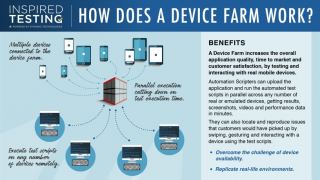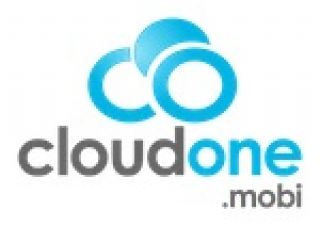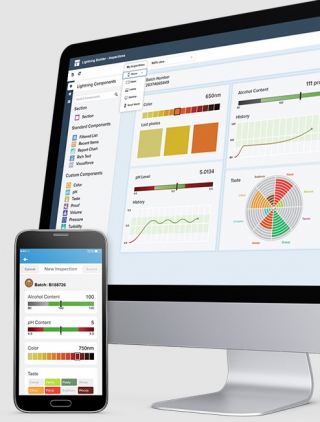DynamicDocs API: The next paradigm in automated PDF document generation
Johannesburg, South Africa - ADVICEment in May 2021 announced DynamicDocs API, which is revolutionizing the industry with its accessible and straightforward approach to pdf generation - all at affordable pricing. It leads the way with its innovative process of using LaTeX and serverless computing to generate PDF documents via an API. The modern approach to API development has evolved with the availability of cloud computing. Therefore it becomes essential to innovate over technological advancements that can improve client's digital experiences. Keeping that in mind, DynamicDocs API has been built so that one can quickly integrate with it and start generating PDF documents using existing (or new) templates.
The DynamicDocs API cuts down all the noise over pdf generation in just three steps, namely:
- Design your template or utilizing the existing one using LaTeX in your account online
- Parse the dynamic data for the template in JSON format
- Then simply call the DynamicDocs API through RapidAPI.com or directly if you're an enterprise client
To see DynamicDocs API in action, you may complete the steps above and generate a PDF document via an API in seconds using a simple form on the ADVICEment's website.
Also, on ADVICEment's website, you can register for an account and get access to the DynamicDocs API dashboard. DynamicDocs API dashboard gives clients the ability to create customized templates to manage customer-specific documents and monitor API calls. The serverless technology helps clients create customized documents effortlessly and maintain the high scalability of the PDF API."
At ADVICEment, we are looking to innovate not only technologically but with affordability and feasibility," said Igor Rodionov, ADVICEment's founder. He further stated, "We are excited to offer our clients a viable, plug and play solution to generate PDF documents in the cloud. The DynamicDocs API extends our services from investment documents like factsheets to any customized document which can contain dynamic text, tables and charts."
Focus on quality
One significant advantage of LaTeX is that it does an excellent job of typesetting. LaTeX evaluates through various sets of built-in algorithms the optimal layout of the document. Its typesetting algorithms are highly refined and use scaled point as a measurement which results in profoundly accurate pdf generation. The document templates offered on the platform use various computational resources to carry out calculations and remain interactive by including dynamic data, tables and charts. The output document is optimized for display with professional quality, dynamic content and client branding.
Scalability and output
DynamicDocs API helps break down huge pieces of data into smaller parts and place them in specific document sections using particular template commands. LaTeX can also simplify creating tables of content, references, and text formatting on multi-file projects with PDF documents as an outcome. It's a different paradigm for document creation that looks past the kludgy cross-referencing and is one of the most powerful formats to structure your texts. The dynamic documentation structure helps users start writing documents faster with just the right amount of flexibility required for popular customizations.
Fast integration
The primary purpose of DynamicDocs API is to save the time of developers so that they can integrate quickly with the API and avoid a long development process for document generation. It enables your vital applications to get additional functionality of transactional PDFs, which is usually associated with established enterprises. Your developers need not worry about building or deploying new servers as part of the publishing process. DynamicDocs API creates a smooth, effortless integration and saves your business time and money.
Safety precautions for data
DynamicDocs API complies with strict security protocols using Amazon Web Services infrastructure to ensure your data is safe and secure. Moreover, the data and documents are stored no longer than 30 days in our environment. With the myriad of possibilities that can be realized over the internet, an adequate amount of security has been put in place to safeguard our client's interest and provide them with a blanket of trust.
Pricing
The DynamicDocs API is available through RapidAPI.com (on a freemium basis) or by contacting ADVICEment directly. Enterprise clients can choose the direct option if they require to generate a large number of documents each month, with enterprise pricing starting from $0.05 per PDF. ADVICEment also offers template development services and integration consultation, enabling potential customers to evaluate the service benefits effectively.
About ADVICEment
ADVICEment enables the digital transformation of corporate companies with its technology. Its mission is to provide high-quality technological and practical solutions to the industry. For more information, visit the ADVICEment website.
Mobile testing can make or break small screen experience
Testing should not be viewed as a ‘quick fix’, but an integral part of the DevOps process, says Inspired Testing.
The proof that considerable advances have been made in mobile testing is evident when one compares the user experience a decade ago to present time. From frustratingly slow and difficult to navigate, mobile interfaces are now coming into their own, providing millions of seamless and happy encounters.
Does this mean mobile testing has finally found its groove?
Well, yes and no. Yes, because the small screen platform is finally being understood as a discrete medium that requires specific testing skills and expertise. Mobile testing is now an area of specialisation. And no, because the diversity of content, continuous updates and the plethora of devices on the market at any given time – with their associated operating and application software – create a constant challenge to mobile testers, and their clients, to provide a fast, error-free and fluid user experience.
With what do we test it, dear Liza?
“One of the biggest tribulations for companies wishing to test their software on mobile devices is access. The number of makes and models available can make it a cumbersome, expensive and ongoing process,” says Jacques Fouché, CEO of software testing firm Inspired Testing.
Cloud-based public device farms provide a range of mobile devices and offer a useful rental service, but they have some drawbacks. Firstly, it can get very expensive, especially for larger corporates that have a wide range of services they need to cover. Larger organisations often require 24/7 access to the devices for a prolonged period of time. “Public device farms are more suitable for smaller companies that have a couple of apps they want to test, but this also depends on their risk profile,” explains Fouché.
Another option is cloud-based private device farms, where you strategically procure your own devices and either house them in your own data centre within the business, or with an outsourced provider. Either way, you have 100% access to the devices at any time, without having to pay a rental fee. ‘Strategically procure’ means you buy certain models within a brand, as testing on one device will give you similar screen real estate on four or five other devices. “This option is good for high-volume device users requiring stringent levels of security, such as companies in the financial technology space,” says Fouché. Companies that strive to achieve a high frequency of continuous integration and deployment would also do well to consider a private device farm, as this will give them unrestricted access to the devices.
Houston, we have lift-off… or not
Once the challenge of how to access devices for testing purposes has been solved, the process of testing begins. This is where companies can really come unstuck, says Lloyd Dignan, Director: New Business, Inspired Testing. “Whether it’s a new release or an update, a complete retest is the only solution. There is a perception that once you have released your app or launched your Web site, any subsequent updates will not be as critical. Many big players have discovered the hard way that this is not the case. No company is immune to crashes and errors. To avoid this, testing should be viewed not as a ‘quick fix’, but an integral part of the DevOps process,” he explains.
Understanding which devices your market uses is also critical to the testing process. Tapping into the information streams available, such as market research, Google Analytics and your marketing engine will provide insights into the make and model of devices accessing your site or app, from which you can extrapolate technical data. Also bear in mind that device usage differs significantly from country to country. For example, in the UK, the majority of 18-35-year-olds have the latest iPhone. In Romania, the Samsung Galaxy J5 is the most popular phone, while Chinese brands Tecno and Infinix are big brands in Nigeria. “Keeping current with devices and operating system updates is one of the main challenges facing companies,” says Dignan.
One thing mobile users across markets, countries and continents do have in common is intolerance to poor app and Web site performance. “There is absolutely no loyalty,” says Dignan. “If an app crashes or takes too long to load (between four and eight seconds on average), the user will move on – and even delete the app before they go.” Because there is such fierce competition, there is significant pressure on companies to go live as soon as possible. “The opportunity for mobile is massive, but organisations have to make sure their systems and applications are fully tested – and the errors fixed – before they release. Errors become compounded with each new update and it gets harder to fix each time,” explains Dignan.
A changing landscape
There are clear statistics that show a massive transition from user access via desktop and laptop to mobile devices (including tablet), while the consumption of data has moved significantly from laptop to mobile. Mobile devices are not only used to access apps; they are becoming the platform of choice to access Web sites. This makes Web site testing as important as app testing, as an estimated 63% of users worldwide now use their mobile devices to access Web sites. There is much more likelihood of someone completing their cart on a phone than on a laptop or desktop. In addition, says Dignan, the emergence of responsive Web sites – Web sites that shrink down and respond to the size of the screen – made mobile browsing much easier, while many companies are now releasing apps to augment their Web sites, to provide an interactive user service. Progressive Web applications that look and load like ‘normal’ Web pages, but offer the functionality of an app, are also becoming standard practice.
These shifts are creating massive opportunities in the mobile space, and consequently, a significant explosion in mobile testing, says Fouché, particularly in industries such as fintech, logistics and retail. Automated mobile testing has become an area of specialisation in itself, and mobile testing is no longer a sub-set of testing, but a category in its own right.
-- END --
About Inspired Testing
Inspired Testing’s disruptive onshore offshore model offers a revitalised alternative to outdated offshore models. With a scalable pool of 250+ expert SQA professionals in the UK and South Africa, the company’s strength lies in knowing how to structure, execute and automate testing. Importantly, our ISO 27001 certification and its alignment to the UK/EU GDPR (General Data Protection Regulation) ensures full protection of critical personal data. Inspired Testing uses a unique combination of experience, technique and blended onshore offshore delivery capabilities to provide expert software testing across most platforms, devices and environments. www.inspiredtesting.com
Inspired Testing is a wholly owned subsidiary of Dynamic Technologies, a software and technology group with 1 000+ staff and thirteen group companies across the UK and South Africa providing a diverse range of technology solutions, digital services and related core competencies. Our group companies comprise DVT (which includes the DVT Academy), Inspired Testing, DotModus, Cloudsmiths, IndigoCube, Blue Pencil Consulting, Dynamic DNA, Blue Pencil Creative, Emerald Consulting, Dynamic Talent, EventSmiths and Swarm. www.dynamic-tech.com
Real-Time Analytics Sheds Light on African Power & Water Challenges
Cape Town, May 16: FuseForward, a provider of cloud and analytic solutions, is demonstrating the benefits real-time analytics can deliver to African utilities during the African Utility Week conference and exhibition.
Held from 14-16 May in Cape Town, South Africa, African Utility Week is the leading conference for African power, energy and water professionals. FuseForward’s Founder and CEO, Mark Damm, is excited about the opportunity to provide analytic solutions that shed light on the challenges faced by utilities in Sub-Saharan Africa.
“Utilities in Africa face a range of issues, many of which affect their ability to meet basic demands for water and electricity,” says Mark. “We know that the availability of reliable and complete data is critical in order for utilities to find solutions to their challenges.
Data from IoT devices and smart meters can help, but developing the technology required to ingest, store and make sense of this information is a barrier for many resource-strapped utilities.” FuseForward’s cloud platform provides a secure, reliable way for utilities to store, aggregate and analyze data from their IoT and smart devices, delivering the comprehensive performance information utilities need within a single interface.
Example utility challenges that FuseForward can address include:
- Demand management: Data from devices and external sources can be used to predict peak electricity or water usage times, enabling better management of resources.
- Preventative maintenance: Deteriorating infrastructure can often be the cause of outages in Sub-Saharan Africa.
By analyzing sensor data from equipment and infrastructure, utilities can obtain real-time maintenance alerts, preventing outages before they occur.
With the event set to close today, Mark is optimistic about the future for the industry, and the role FuseForward can play. “We’ve had a chance to hear first-hand about the challenges facing utilities and are looking forward to the opportunity to help solve them. Not only do analytic solutions in this sector have the ability to provide business improvements for utilities, they also play a role in improving the delivery of power and water across Sub-Saharan Africa—and that’s something our team is very enthusiastic about!”
About FuseForward
FuseForward is an AWS Advanced Technology Partner and Select Consulting Partner that provides secure cloud environments and analytic solutions for critical infrastructure providers and public agencies. Headquartered in Vancouver, Canada, we serve customers around the world from our offices in South Africa, Europe and North America.
For more information visit www.fuseforward.com
Media Contact: Wendy Scott at +27 83 270 7765 or This email address is being protected from spambots. You need JavaScript enabled to view it.
CloudOne.mobi secures major investment to boost its cloud-based business solutions
Cape Town-based CloudOne Technologies Pty Ltd, trading as CloudOne.mobi, has announced that it closed two funding rounds totalling R34m at the end of 2018. The investors include Investec Private Capital, through its Emerging Companies mandate. The investment will be used to help scale out and grow the business more aggressively. CloudOne.mobi was founded in October 2014 with the mission of re-inventing the Point Of Sale (POS) experience.
Founder and CEO Dana Buys has successfully started and sold a number of software businesses since launching his first business while studying at the University of Cape Town in the early 1980s. Subsequently a hospitality business owner, among other interests, he became frustrated with poor levels of technology, particularly related to POS. Buys is passionate about customer service and wanted a solution that would improve the speed and accuracy of serving customers.
"Speed and accuracy deliver a win-win for both business and its customers,” he says. “Happy customers spend more and spread the good news via word of mouth. Accurate orders reduce costly mistakes and improve profitability. It’s hard to beat if you can make the solution easy-to-use and affordable to own!” He continues, “There is massive opportunity to deploy affordable Cloud and mobile technology in Sub-Saharan Africa. The Cloud solutions model allows us to eliminate many of the headaches experienced by SME businesses which often lack strong IT skills. We develop the , keep the systems up to date, manage the databases and integration to external solutions, perform regular backups, and enforce security.”
CloudOne.mobi has developed an advanced cloud-based Point of Sale solution called TallOrder for SME businesses across the hospitality, retail and service segments. TallOrder delivers Cloud benefits, along with robust offline capacity to deal with the relatively slow, less reliable and costlier Internet prevalent throughout emerging markets. Buys explains that similar solutions developed in the United States and Europe assume an always-on, fast and low-cost Internet which is not yet the case in Africa and other developing markets.solution
CloudOne.mobi says TallOrder is easy to deploy, easy to learn to run, and operates on Microsoft Windows, Apple's iOS, and Android devices. It is designed for traditional point of sale stations, tablets and even smartphone-sized devices. The system supports mobile use, which boosts the speed and accuracy of customer service. "TallOrder replaces expensive upfront license and installation fees with low monthly or annual fees, based on the number of devices in use. This opens the market to many businesses which previously could not afford nor cope with the older technology" says Anna Groenewald, COO and co-founder at CloudOne.mobi.
According to Meiring de Wet, Chief Technology Officer at CloudOne.mobi, "SME companies by themselves will never generate enough data to be as truly useful as Big Data. We have built TallOrder in a way that allows us to aggregate the small data coming from SME businesses into Big Data".
“This investment is an important opportunity for CloudOne.mobi to expand our software developments and allow us to rapidly scale our marketing and sales efforts and increase our future partnership opportunities,” stated Groenewald. Learn more about CloudOne.mobi and their hero products TallOrder Point of Sale and PageMan Digital Signage on their website, https://cloudone.mobi/ or contact them at This email address is being protected from spambots. You need JavaScript enabled to view it./ +27 (0) 728630116
A new company emerges to disrupt the software product market
SovTech, a software development company and start-up incubator based in Johannesburg, has recently stepped into the software as a service industry and is looking to shake things up. Having focussed predominantly on custom software development in the past, the company has picked up on several shortfalls in the South African business software industry and is excited to tackle these shortfalls and disrupt the conventional industry players with their premium product range.
With an experienced team and valuable customer feedback, SovTech entered the fray by developing an initial set of three turnkey products that are aimed at small to medium sized businesses. The products that are currently available to clients are a CRM product, a document management system, and a marketing automation product. With five more products in advanced stages of development, the software company is looking to offer their product suite as a set of solutions for any business needs. “SovTech has been looking at the software-as-a-service market for a while. We have had a few companies approach us in the past for various projects and could not help them as they did not have the budget for a full custom software solution.
SaaS allows us to offer our clients a great product that can be delivered quickly and at a great price point”, says the person spear-heading the SovTech Products business unit, Brendan Stott. While the company was hesitant to shift some focus away from the core business offering, Gerald Neves, CEO of SovTech, had this to say on the bold move: “The final decision to move into the SaaS industry was essentially made for us when we saw the lack of providers in the industry and the demand that we received from our current clients. We are excited to be able to build on the relationships we have with our current customers and offer more value for money to them and any new customers.” One of the first products to be in clients’ hands is SovTech’s Sales & CRM Cloud.
This cloud-based CRM that has been developed by SovTech to cater for small to medium enterprises that are looking at improving the quality of the data that they receive from clients, as well as to decrease the amount of time spent on generating invoices and creating reminders to follow up on client interactions. The Sales & CRM Cloud product features tools that allow sales managers to gain insight into the activities of the sales people, allowing managers to take proactive steps to improve the sales process in the company and identifying choke points and congestion in the sales pipeline- thereby increasing the overall sales of the business.
Sales people are more productive with the quote and invoice generator that optimises those processes to ensure that sales people can speak to more prospects than ever before. The products that have been released are already being used by multiple companies and users and SovTech is receiving great feedback to improve the products.
SovTech has always placed a strong emphasis on listening to customers and ensuring that a software solution develops with the customer’s changing needs. This culture will ensure that further upgrades and developments of the platform will serve the greater client base and allow the team at SovTech to offer the best service and products to their clients.






